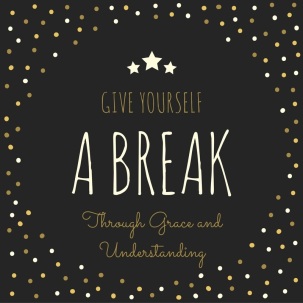
Last year one of my big goals was to learn to live more in the present. As a professional I have always struggled with separating work and home life without guilt. When I am working, I am thinking about all of the things I’m missing with my family and when I’m with my family, I am thinking about all of the things I could be doing for work. I’m passionate about both and that’s what causes the tug-a-war. And when I’m trying to do something for myself (heaven forbid), I am thinking about the time I’m taking away from either work or my family. And then, I feel guilty for thinking about one while trying to participate in the other. It is a never ending cycle that I am sure all of you are familiar with.
But other than trying to eliminate guilt, why is being “present” so important?
- Being present is one of the building blocks of great communication and connection
Let me ask you a question. Do you feel like you are really connecting with someone when you know they are not really listening to you? This could be your spouse, a child, a co-worker, or someone you just met at a networking event. Do you feel you have clear and effective communication with someone when they never take their eyes off their phone while you are speaking? So imagine how others feel when you choose not to be present in a conversation or even in life? Is your spouse or child going to come to you when they have an issue or share something exciting with you if they feel you never listen?
My mom was always bad about this. She didn’t ignore me on purpose she just always had 10,000 things going on at one time. When I was young I would ask her permission to do things (go outside to play, pull toys out of the bin, grab a snack, etc) and she would answer yes without really listening to my question. Then I would get in trouble once she realized what I was doing. To avoid getting in trouble, I started asking her to “say it” every time she answered me. I needed her to repeat back to me my request and her answer to make sure she actually heard me.
Although I consider my relationship with my mother to be very strong, I don’t share much information with her voluntarily even to this day because she still has 10,000 things going through her mind at any one time and more than likely won’t hear what I have to say. So I stopped sharing a very long time ago. I don’t want my daughter, my husband, my brother, or my friends to ever stop sharing with me.
2. Being present builds significance
Significance is one of every human being’s basic needs. We all need to feel significant. Do you think it makes someone feel less or more significant if they are trying to communicate with you and you don’t look up from your phone? Do you think it makes someone feel less or more significant if you’ve planned special time to be together and they don’t fully participate because they are taking calls, watching TV, reading something, etc? Of course people feel less significant when they feel like they can’t compete with whatever has your attention at this moment.
So, imagine how my daughter feels when she receives a really great grade and I can’t look up from my blog post to acknowledge her accomplishment? She feels that her grade is insignificant to me and therefore she is insignificant. Imagine when my husband is trying to tell me about a new idea he has or something he is interested in and I continue preparing dinner without making eye contact with him. And then to make it worse, I ask him to repeat what he said because I wasn’t listening. He feels insignificant.
What if it is an employee, a friend, a customer/client? Do you think they are going to want to work hard for, be friends with, do business with someone who makes them feel insignificant and unvalued? Getting all of me, not just part of my attention, is something that everyone in my life deserves.
3. Being present makes memories
Actually, not being present makes memories, too. It just depends upon what type of memories you want to make. Do you want the memories that you make with your family and friends to be positive, negative, or just not that memorable at all?
I personally don’t want to miss a moment to connect because I wasn’t paying attention. I don’t want to miss a funny joke because I wasn’t listening. I don’t want to miss my daughter’s service ace because I decided to check my email.
I want people to think of their time spent with me and say that I worked hard when working and I fully participated in life when not working. That’s what I want people to remember of their time with me.
How do you practice being present?
Here are a couple of tips and tricks that will help you learn to live more in the present.
- Understand your “why” and then commit
If you’ve noticed that you are not fully present in your life and want to make changes to correct this, you must understand why it is important to change. If you don’t understand why it’s important, then you will never be able to fully commit to making the changes and you will slip back into your old habits.
It is easier to be fully present when you give yourself permission to focus on one thing at a time. The best way to do that is to compartmentalize your activities and then set boundaries. For example, my morning routine begins with some stretching and meditating. This happens after our daughter goes to school but before I start my work day. Because I have set aside this time for me, I have to give myself permission to fully embrace this time and not think about all the things I have on my “to-do” list that day. If I’m thinking about work, then I’m not going to get as much out of the stretching and quiet time. My best ROI is to concentrate on why doing these two things first thing in the morning make me more productive and a better person while not concentrating on the minutes that are slipping away from my work day.
Work time is just that. Thinking about throwing in a load of laundry while I’m writing this blog post is not going to allow me to clearly think about what I want to say in this post. There will be time for laundry later.
If my daughter interrupts me while I am working to tell me a story, I explain that I need to finish something up for work and then she will have my full and undivided attention. And she’s okay with that because she knows that I will really be able to listen to her story if I’m not trying to work and listen at the same time.
When we plan family time, it is important to not allow work interruptions during that time. My clients have learned that I have set work hours. If they contact me outside of those hours there will be a delay before I get back to them. I’m not a heart surgeon – no one will die on the table if I don’t respond immediately. If I schedule family time during normal work hours, then I communicate that I will be away from my desk and will return any messages when I get back. If I need to schedule work time during normal family hours, then I communicate that with my family to set proper expectations.
Put all electronics away after a certain time every day. For example, decide that you are not going to check email (or Facebook) after 7 PM and then protect that time. Make a pact with everyone else in your family to do the same. The difference in the quality of your evenings will be mind-blowing.
No one is perfectly present at all times. If you find your mind wandering to work during family time, acknowledge the thoughts – even write them down if you need to – then pull yourself back into the present. If you find yourself sliding back into old habits, acknowledge the slide – apologize to people if necessary – then recommit to your “why”.
We all have grown up under the myth the humans can effectively and efficiently multi-task. Science has recently proven that our brains are not wired to focus on more than one thing at a time. Not only is it polite, respectful, and important to be present, we just plain operate better being present. Go ahead. Give yourself permission to be a better you by being more present. You will notice the difference and so will those around you. Presence is such an important gift to share with everyone. What are some of the ways you practice being present? I would love for you to share your tips and tricks in the comments below.










